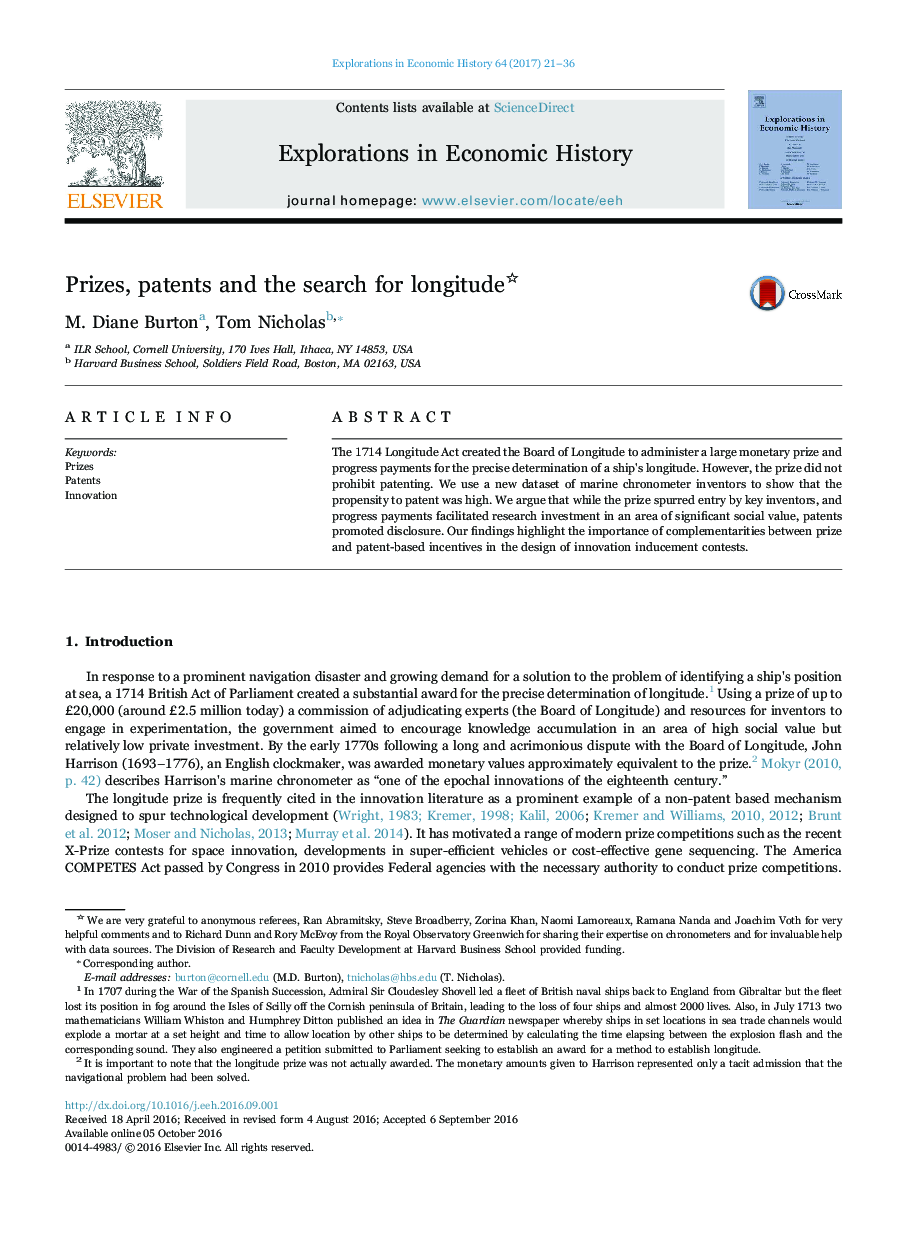| Article ID | Journal | Published Year | Pages | File Type |
|---|---|---|---|---|
| 5068636 | Explorations in Economic History | 2017 | 16 Pages |
Abstract
The 1714 Longitude Act created the Board of Longitude to administer a large monetary prize and progress payments for the precise determination of a ship's longitude. However, the prize did not prohibit patenting. We use a new dataset of marine chronometer inventors to show that the propensity to patent was high. We argue that while the prize spurred entry by key inventors, and progress payments facilitated research investment in an area of significant social value, patents promoted disclosure. Our findings highlight the importance of complementarities between prize and patent-based incentives in the design of innovation inducement contests.
Keywords
Related Topics
Social Sciences and Humanities
Arts and Humanities
History
Authors
M. Diane Burton, Tom Nicholas,
